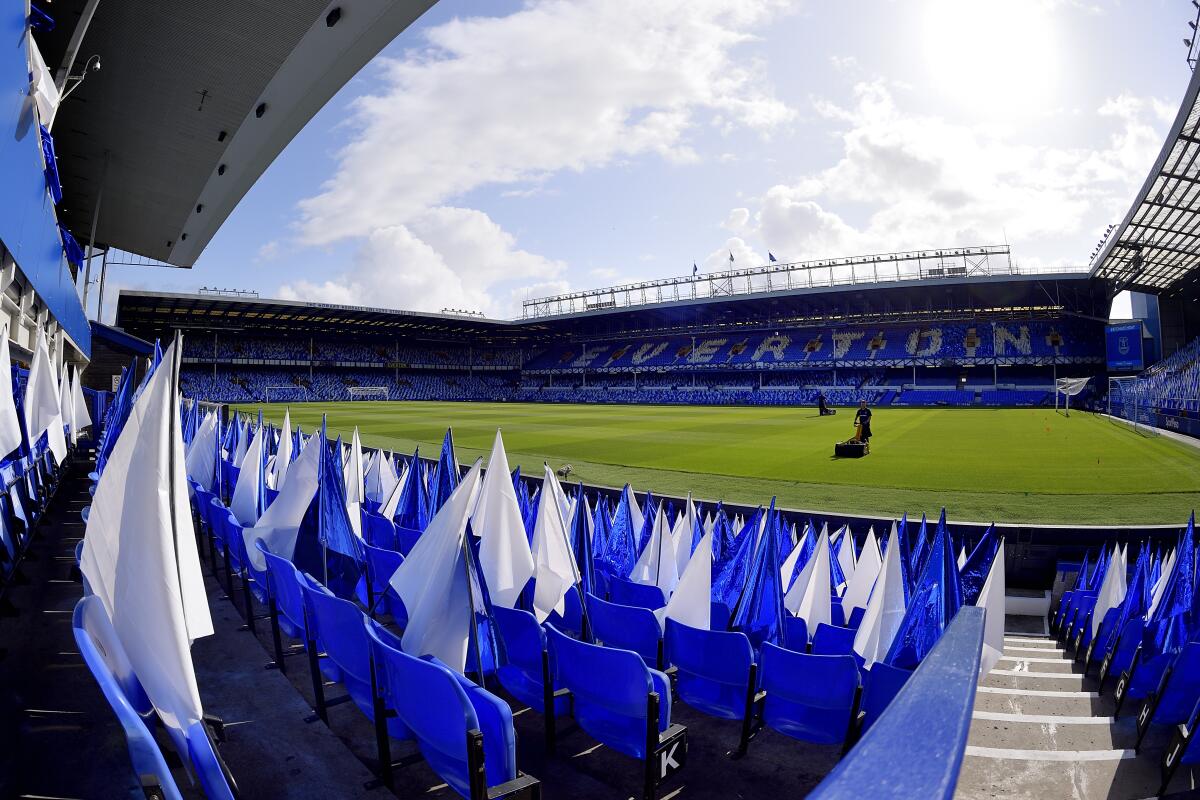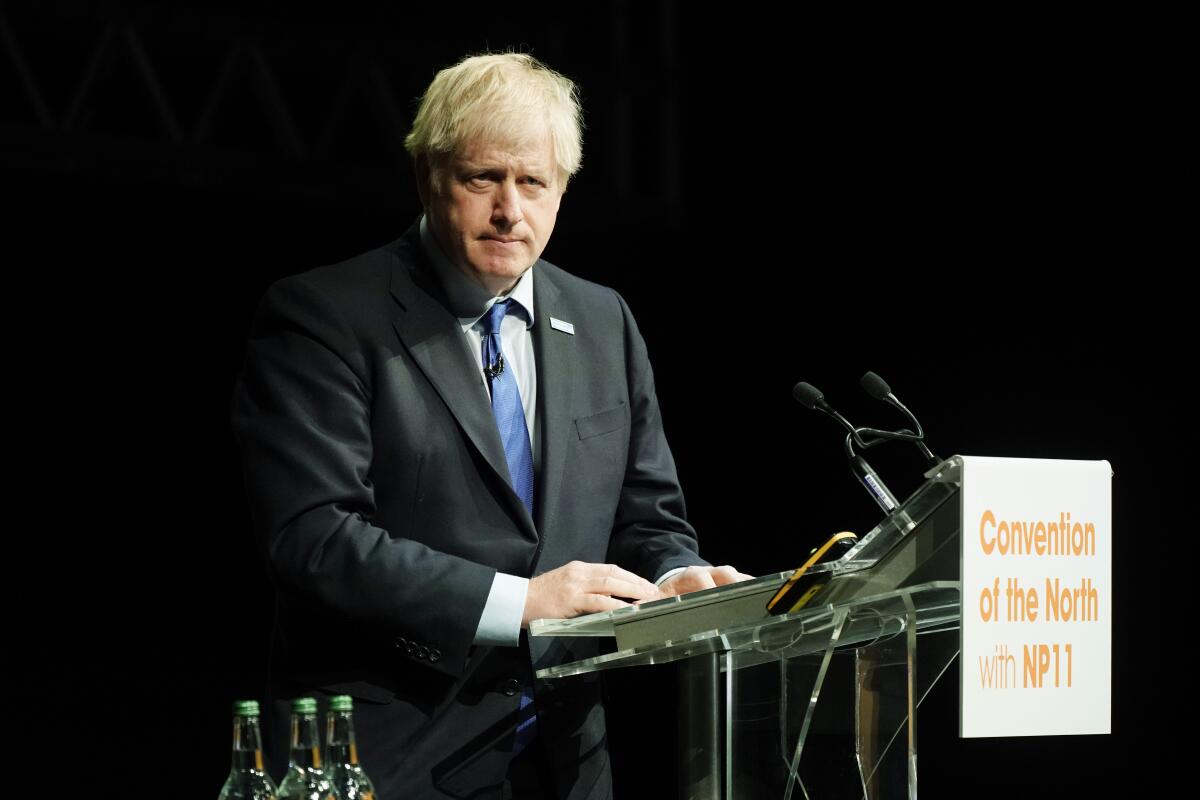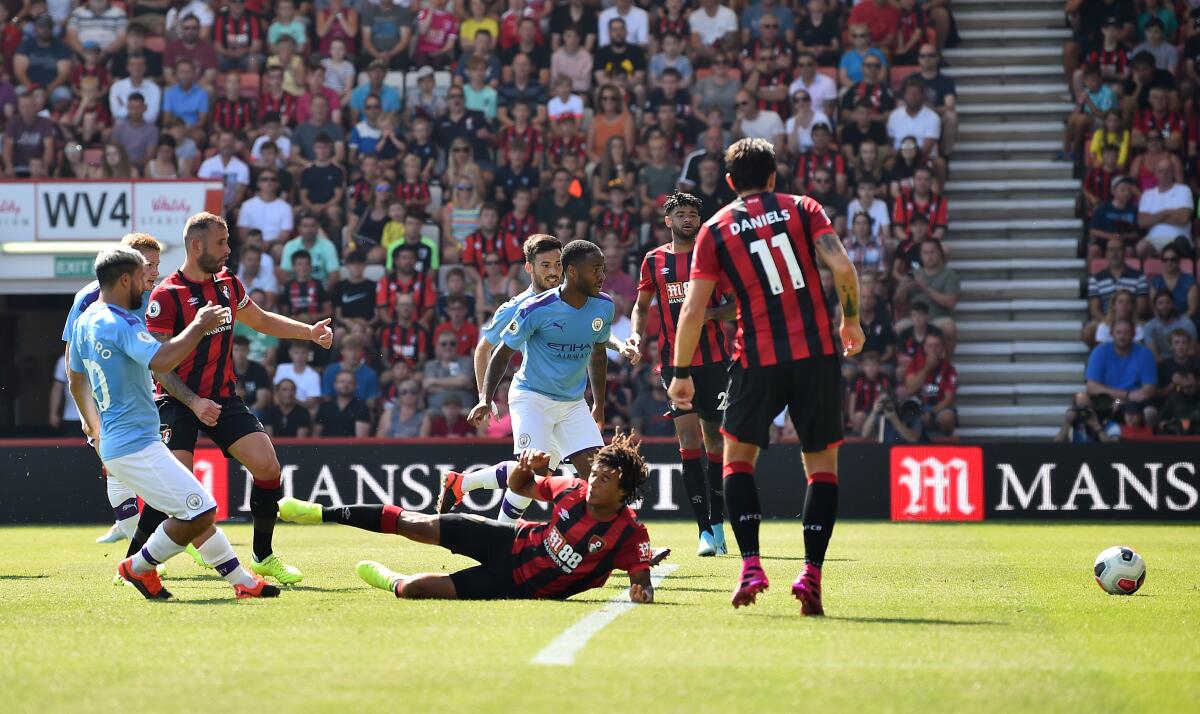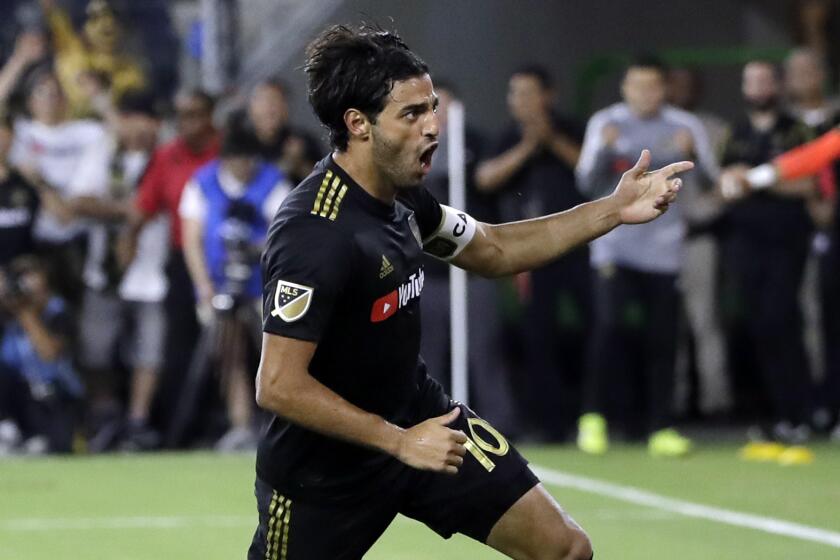Hard Brexit could be a game-changer for the English Premier League and its players

- Share via
If British Prime Minister Boris Johnson makes good on his pledge to take the U.K. out of the European Union next month, with or without a deal, it could have dire consequences.
The pound would plummet in value against other world currencies, experts say, leading to shortages of fuel, food and medicine. Authorities are predicting job losses, massive immigration and customs delays — even the possibility of civil unrest — if there’s a so-called hard Brexit.
But there may be one sector that remains too large to fail, no matter how ham-handed Johnson’s determination to watch the sun set on Britain’s EU membership. Chris Brady, the director of the Center for Sports Business at Manchester’s Salford University, believes soccer — and specifically the English Premier League — would pretty much muddle along as normal despite the drastic implications a no-deal Brexit would bring.
“There are a whole lot of issues that need to be resolved. But the overwhelming importance of the Premier League to the British economy, to the European economy, to the global economy, all of those things would probably mean that something would be sorted out,” Brady said.
“In the 11th hour, it will be done because the Premier League is so important.”

As long as Britain remains in the European Union, it will operate under the same financial and immigration statues that govern the other 27 member states, laws that allow players and money to move freely through the European Economic Area (EEA). That has streamlined the transfer process between teams and leagues and eased travel for European competitions such as the Champions League, Europa League and national team matches.
Brexit would change that by subjecting players from EU countries to the same immigration and travel restrictions entering the U.K. that players from the U.S., Latin America and Asia now face. A massive devaluation of the pound against the euro would also hurt the Premier League by forcing its clubs to pay more for players relative to teams in EU countries such as Portugal, Italy or Spain.
“One of the biggest issues that everybody brings up is, once we’re out of the EU, all footballers entering into the U.K. would be considered foreign players, and there’s a whole load of criteria that they have to accept in order to come into the country,” Brady said.
Plenty remains at stake for LAFC and the Galaxy in their respective playoff pictures heading into the final stretch of the MLS regular season.
That’s significant because more than 65% of the players in the Premier League were born outside the U.K., the highest percentage of any of Europe’s top five leagues, according to the German soccer website transfermarkt. And nearly half the players in England’s second-tier Championship are foreign-born as well.
Once Brexit takes effect, those players would have to obtain what’s known as a governing body endorsement from England’s Football Assn. — essentially a work permit earned through a system that allocates points based on transfer fees, salary, international caps and the FIFA ranking of a player’s national team.
Last year, the FA estimated that 65% of the Premier League’s European players from outside England and Ireland would not have qualified for the work permit.

At the time Brexit was being considered, in the spring of 2016, the FA — which oversees all soccer in England but does not manage the day-to-day activities of the Premier League — pushed for Britain to remain in the EU, for reasons of convenience if nothing else. But in the three years since the referendum passed, frustrating three prime ministers who have been unable to implement it, some in the EPL have grown troubled by the inability of the FA or the league to prepare for the day the split finally happens.
“It has less to do with being lazy and more to do with clarity,” Brady said. “They just haven’t got a clue what’s going to happen. So they’re hedging their bets.”
Sign up for our free soccer newsletter >>
But with an exit of some kind now near certain, the FA has begun lobbying for special arrangements, including a rule that would do away with the points system and make a Premier League contract sufficient for a work permit. (That would probably benefit U.S. players as well, many of whom found it difficult to qualify for a work permit under the old formula.)
In exchange, the FA would lower the league’s cap of non-homegrown players from the current number of 17 per team, or 340 leaguewide.
If Johnson forces a hard Brexit — basically an exit from the EU without any agreement in place — Brady expects the government and the FA to reach a deal quickly. The leisure industry, of which soccer is a huge part, is a major source of revenue in Britain, “so to damage that doesn’t make sense,” he said. “It doesn’t make sense for Europe either.”
As for those who will see their German medicine and French produce held up for days by customs agents, Brady said he expects most will initially be angry but will eventually learn to keep calm and carry on — with the help of soccer.
“They’re going to be really upset. But they’re going to want to watch football as well,” he said. “If I don’t get this medicine, would I still be able to sit on the sofa and watch the TV? If the answer’s yes, then OK, [screw] it.”
More to Read
Go beyond the scoreboard
Get the latest on L.A.'s teams in the daily Sports Report newsletter.
You may occasionally receive promotional content from the Los Angeles Times.











